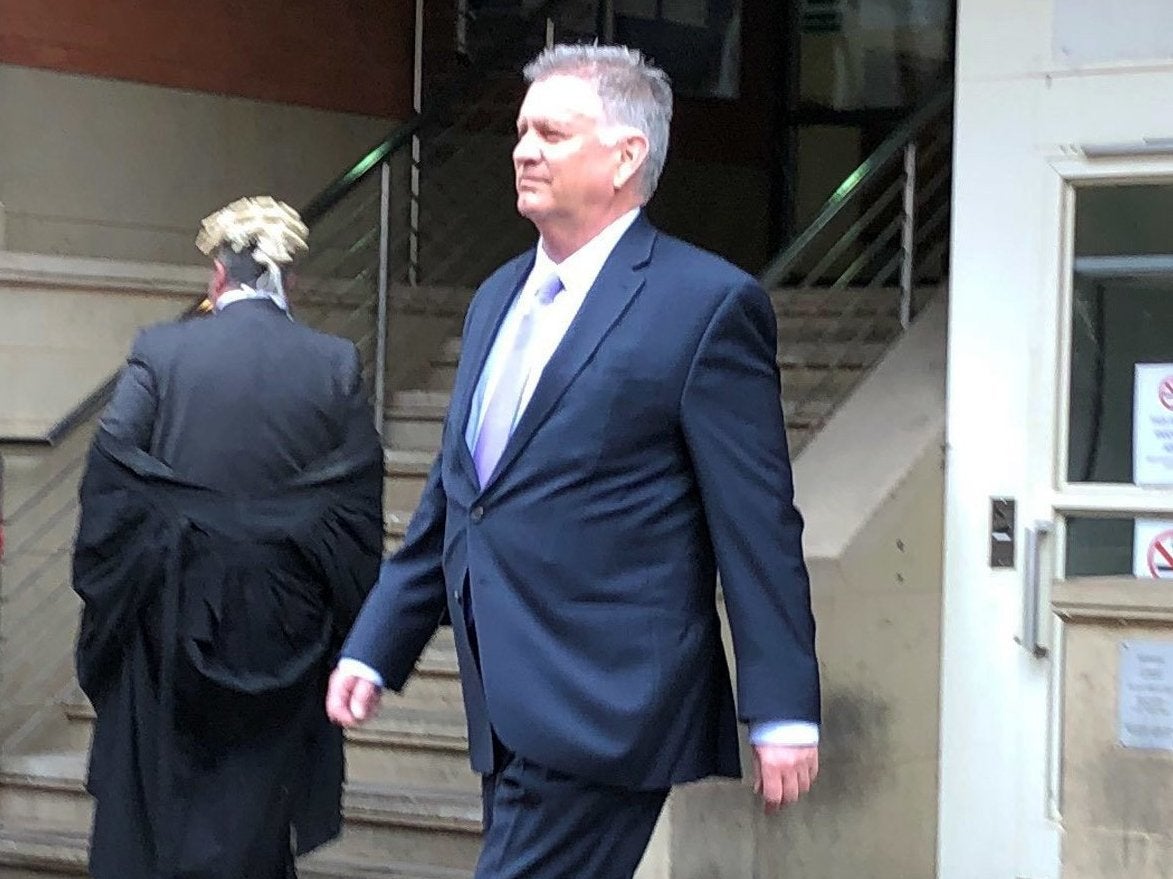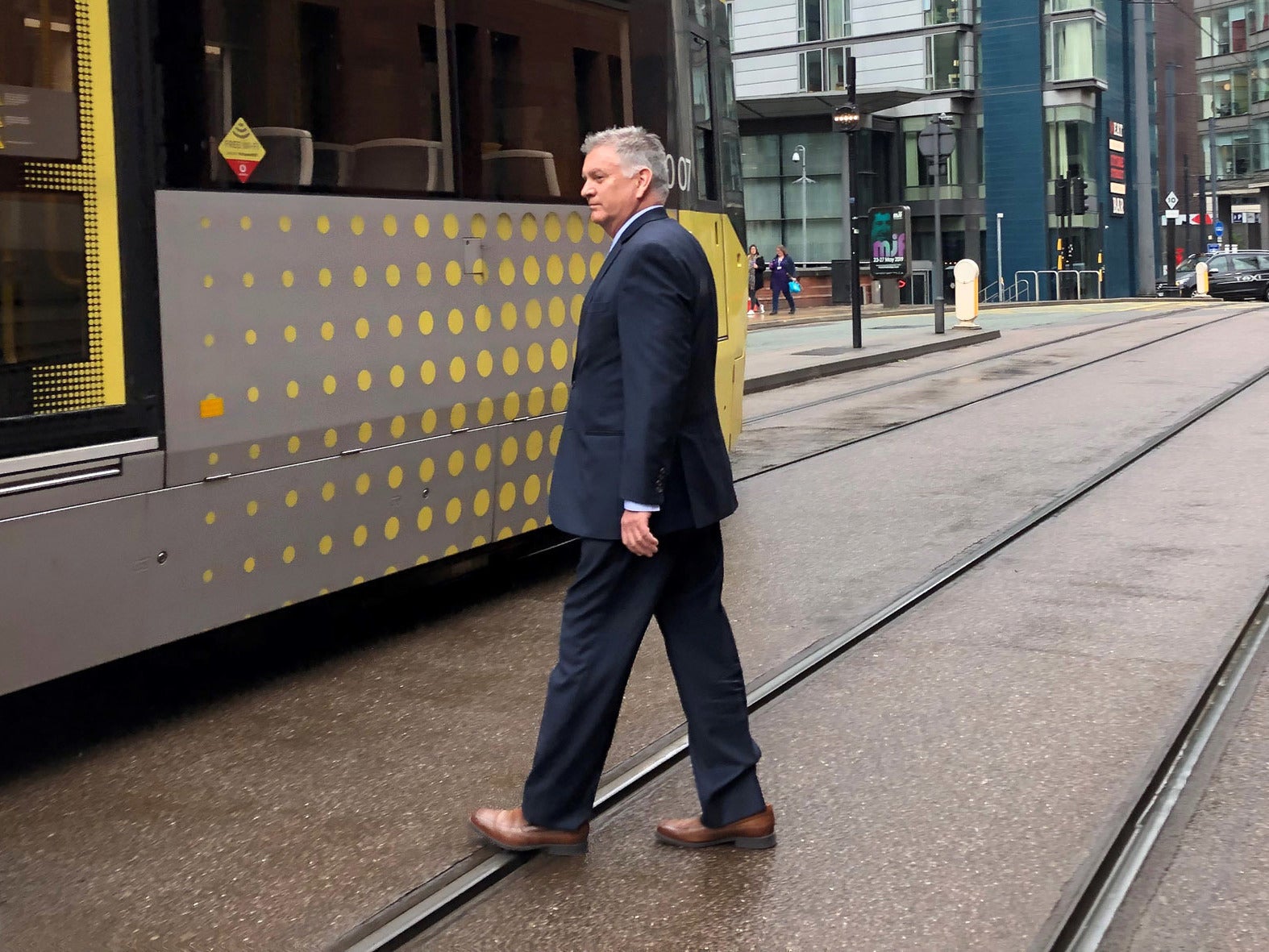Alcoholic pilot spared jail after turning up for flight following 'rum nightcap'
David Copeland followed eight-hour 'bottle to throttle' rule but was still over the legal limit

A pilot who turned up for a flight to the US while still over the limit after a “rum nightcap” has been spared jail.
David Copeland, 63, had been drinking rum in his hotel room the night before he was due to fly an American Airlines plane from Manchester to Philadelphia, Minshull Street Crown Court heard on Wednesday.
The father-of-two, from McMurray, in Pennsylvania, arrived at Manchester Airport on 7 February where a security officer raised concerns after noticing his demeanour and smelling alcohol on him, the court heard.
The officer contacted police, who held the flight as Copeland was preparing for take-off.
He was breathalysed but the sample failed and a blood test at the police station showed he had 27 milligrams of alcohol per 100 millilitres of blood in his system – over the legal limit of 20.
The UK limit for flying is lower than for driving motor vehicles, which is 80, and also lower than the American limit of 40 for flights.
Judge Maurice Greene told Copeland: “You are an experienced pilot who no doubt has been in this country on a number of occasions before and knows the relevant limit.
“It is a serious offence because of the responsibility you, as the pilot of a commercial airline, hold.
“You hold the lives of many people in your hands when you get into that plane.”
Henry Blackshaw, defending, said that on the night before his arrest, Copeland had a meal with the rest of the crew and consumed a modest amount of alcohol.
He then went back to his hotel room and stayed up to call his wife after she finished work.
“He treated himself to a nightcap of rum in the hotel room and it seems it was that alcohol in combination with the residue of alcohol from dinnertime which would have, in combination, caused his levels to be over the limit the following morning,” he said.
Mr Blackshaw said the pilot had observed the industry’s eight-hour “bottle to throttle” rule and had not realised there may still be alcohol in his system.

The court heard that Copeland had the support of his wife Bobbi, who sat in the public gallery, as well as of his colleagues, community and employers.
Mr Blackshaw said Copeland had accrued more than 27,000 flight miles since he had become employed in the industry in the 1980s.
He added: “He has had a hitherto unblemished flying record. He is a valued employee and he is a respected and popular captain with the crews who fly under him, both those in the cockpits and those in the cabin.”
The court heard that since his arrest, he had been diagnosed with alcoholism.
He has been undergoing a treatment programme for his alcohol issues, which has included spending 30 days in a residential unit and attending Alcoholics Anonymous meetings daily, the court was told.
Judge Greene said if Copeland successfully completed six to eight months of the programme he would be required to undergo a neuro-psychiatric evaluation to assess his fitness to fly.
Copeland was given a six-month prison sentence, suspended for 12 months, after admitting the charge of performing an aviation function while impaired by drink during an earlier hearing at Manchester Magistrates’ Court.
He was also ordered to pay £400 costs.
Press Association contributed to this report
